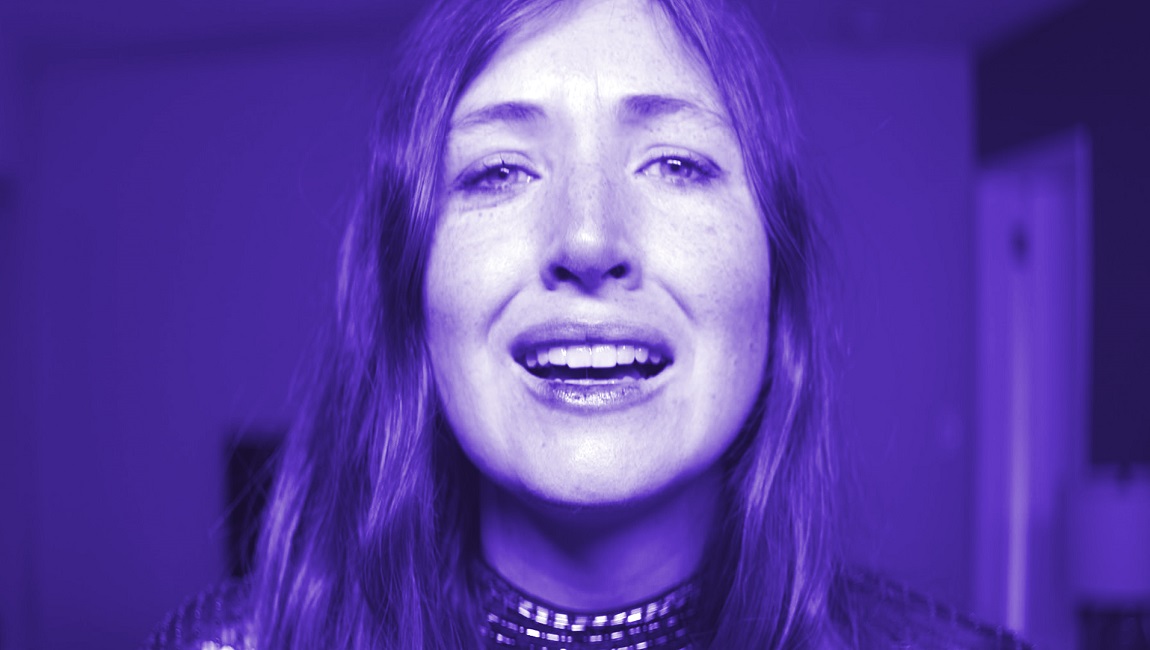The capacity to imagine a better future is integral to any successful progressive movement. Amidst historic protests around the United States against both the relentless siege by Israel on Gaza and major universities’ financial ties to machines of war enabling the siege, students hold their ground in the knowledge that their anger is working toward something better for the people of Palestine. Sarah Friedland and Rami Youniss’ new film, Lyd, which can glibly be described as a sci-fi documentary, takes a similarly optimistic approach to recounting Palestine’s history. Their film is a history lesson across ancient and modern Palestine, moving rapidly through major events accompanied by clever, period-relevant animation (for example, events from the early 20th century are illustrated in the style reminiscent of silent cinema); some remarkable archive footage featuring former Israeli soldiers recounting their attack on Lyd in 1948 at the very place it occurred; a collection of personal stories in Lyd; and an imaginative flight of fancy. That is a lot for one film to take on, and if the directors’ approach to elucidating the lives and experiences of Palestinians in the historic, now-occupied, city of Lyd and its geographic diaspora sometimes feels breathless, it’s not for lack of passion or in maintaining a firm grasp on what it means to imagine both a brighter future and other reality altogether.
Here, the city of Lyd has its own voice, literally, courtesy of Palestinian actress Maisa Abd Elhadi, who narrates and comments on her (Lyd’s) history, as if recounting the events of an individual’s life. She is its consciousness, and its conscience, but she is also our key to an alternate reality, in which the Nakba of 1948, the violent expulsion of hundreds of thousands of Palestinians from their homes and murder of countless others by Israel, never happened. In this alternate reality, the promise of ancient Lyd’s cultural prominence could flourish; people have the ability to move about the city freely, to access supplies and basic needs without the approval of Israel, and to educate themselves without obstruction. But this alternate dimension is not some pure utopia, nor does it want to be, as Lyd herself mentions at one point. As the happy citizens of this imagined Lyd celebrate Eid Lyd, the holiday honoring the city’s patron saint, St. George, the cosmic divide between the two worlds starts to rupture, exposing these carefree Palestinians to the grim reality of the Palestine we all know. These ruptures, which send shockwaves through the city like earthquakes, ripping holes through the approachably and pleasantly animated world, provide glimpses into the parallel lives of several members of Lyd’s diaspora and their families. Among them we meet survivors of the Nakba, who recount in visceral detail the smell and look of dead bodies, of the heat and thirst of forced exile; we meet a large family in the Balata refugee camp, a hub for former residents of Lyd-proper who still consider themselves citizens of the city; and a school teacher, wracked with fear and despair that her young students are quickly losing their sense of Palestinian identity, having only known life under Israeli control. All of these rich stories document conditions under the occupation, ask questions of memory’s longevity and legacy’s potency, and trace the contours of an ongoing physical and emotional fight to keep the idea of a free Palestine alive inside of every person, young and old.
But while these sequences inside the alternate Lyd offer merciful reprieves from the painful realities with which the film confronts us, they also never quite feel like enough. There is so much about this liberated version of Palestine left unexplored, and at points this absence feels like one of the film’s great faults. Why not make full use of this exciting, imaginative premise and paint a comprehensive picture of life in a free Palestine? It’s a question that nags uncomfortably throughout the film. But, as the voice of Lyd tells us in the film’s final moments, “If we don’t imagine, we will end up in someone else’s world, shaped by their imagination.” Even with this confusing, contradictory statement as an explanation, Friedland and Youniss appear to believe that imagination is still crucial. The film is unfortunately vague about exactly who this “we” refers to, but it doesn’t take a great leap of interpretation to suggest that this “we” is whoever is watching the film. And so, as children and adults in free Palestine are confronted with a violent version of itself it never knew was possible, we realize the dangers of a romanticized Palestine — this idealized reality is something we can turn toward as a goal, but should not get lost in at the expense of doing the work to fix the one we live with and in right now. Lyd occasionally spins its wheels across modes of storytelling, of documentation, but it never loses sight of these slippery questions about what is, and what could be, achieved through the power of our collective imagination.
DIRECTOR: Sarah Ema Friedland & Rami Younis; DISTRIBUTOR: Icarus Films; IN THEATERS: April 26; RUNTIME: 1 hr. 18 min.







